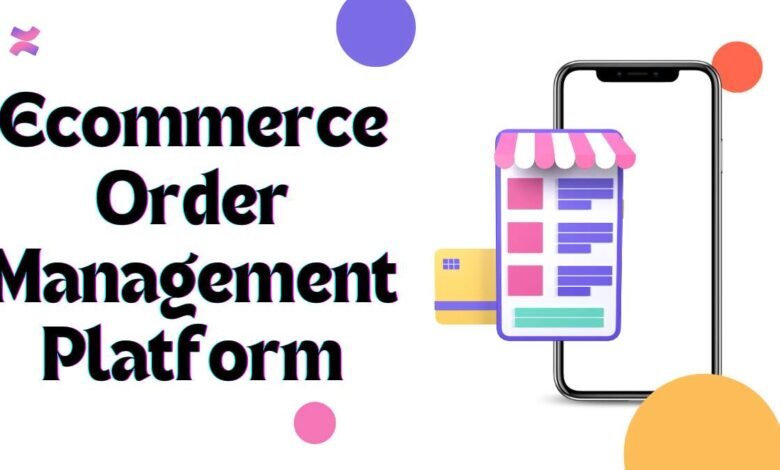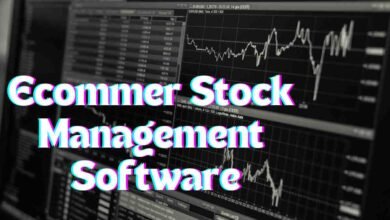
Ecommerce order management platform transformed the way businesses operate, providing opportunities for retailers to sell products globally. As the ecommerce sector expands, managing orders efficiently has become critical for the smooth functioning of an online business. This is where ecommerce order management platforms come into play. These platforms not only facilitate seamless operations but also enhance customer experience by streamlining the entire order processing cycle. In this article, we will explore the importance of ecommerce order management platforms and how they integrate key features like order fulfillment software, order tracking systems, multi-channel order processing, and automated order management. Additionally, we will discuss how inventory and order synchronization is vital for effective business management.
Understanding Ecommerce Order Management
An ecommerce order management platform acts as the backbone of any online retail operation. It is essentially a software system designed to manage the lifecycle of an order. This starts from the moment a customer places an order to the point when the product is delivered to the customer. The platform ensures that orders are processed accurately, inventory is updated in real time, and all communication with customers is handled efficiently. Without an efficient order management system, ecommerce businesses would struggle to keep track of orders, inventory, and shipments. This could lead to delayed deliveries, customer dissatisfaction, and ultimately lost revenue.
Components of Ecommerce Order Management
An ecommerce order management platform consists of several key components, each playing a significant role in the order processing workflow. These components work in harmony to provide an efficient and automated order management system.
Order Fulfillment Software
Order fulfillment software is a critical feature of any order management platform. This software handles the entire process of receiving, processing, and delivering customer orders. It streamlines the steps required to pick, pack, and ship products from warehouses or fulfillment centers to the customer. With the right order fulfillment software, businesses can ensure that customer orders are fulfilled on time. The system also helps manage the complexity of shipping logistics, including coordination with carriers and the generation of shipping labels.
Must Visit: Digitzo
Order Tracking System: Ecommerce Order Management Platform
Order tracking is an essential part of modern ecommerce. Customers expect to know the status of their orders at every stage, from order confirmation to final delivery. An efficient order tracking system provides real-time updates to both the customer and the business. Order tracking systems are typically integrated into the order management platform, allowing customers to access tracking information directly from their accounts. This enhances transparency and fosters trust between the business and the customer
Multi-Channel Order Processing
In today’s competitive ecommerce environment, most businesses sell across multiple channels. This could include their own website, marketplaces like Amazon and eBay, or even social media platforms. Multi-channel order processing is a feature that allows businesses to manage orders from various sales channels in one centralized platform. Managing orders from different channels can be complex and time-consuming if done manually.
Automated Order Management: Ecommerce Order Management Platform
Automation is at the heart of modern ecommerce order management. Automated order management systems allow businesses to reduce manual intervention in the order processing cycle, thereby increasing efficiency and reducing errors. Automation can be applied to various aspects of order management, including order routing, inventory updates, and customer notifications.
Importance of Inventory and Synchronization

One of the biggest challenges in ecommerce is managing inventory across multiple sales channels and fulfillment centers. Without synchronization, businesses risk overselling, stockouts, and delays in fulfilling customer orders. A good ecommerce order management platform integrates with inventory management systems to provide real-time updates on stock levels. This synchronization ensures that customers can only order products that are in stock, reducing the likelihood of disappointment
Benefits of an Ecommerce Order Management
Implementing an ecommerce order management platform offers numerous benefits for businesses of all sizes. Some of the key advantages include:
Enhanced Customer Experience
A seamless order management system ensures that customers receive their orders quickly and can easily track their status. This enhances the overall customer experience, leading to higher levels of customer satisfaction and increased brand loyalty.
Scalability
As businesses grow, managing orders manually becomes increasingly difficult. An ecommerce order management platform is designed to scale with the business, allowing it to handle larger order volumes without compromising efficiency or accuracy.
Cost Savings
By reducing the need for manual labor and minimizing errors, businesses can save money on operational expenses. Additionally, faster order processing and reduced shipping times lead to lower shipping costs.
Implementing an Order Management Platform
While the benefits of an ecommerce order management platform are clear, implementing one can come with certain challenges. These challenges are particularly relevant for businesses that are new to such systems or are transitioning from manual processes.
Integration with Existing Systems
One of the most common challenges is integrating the order management platform with existing systems, such as inventory management, customer relationship management (CRM), and accounting software. Businesses need to ensure that all systems work together seamlessly to avoid disruptions in the order processing workflow.
Training Employees

For businesses that are used to manual processes, training employees to use a new order management system can be a challenge. It is important to invest in comprehensive training to ensure that staff can fully leverage the platform’s features and capabilities.
Conclusion
An ecommerce order management platform is essential for businesses that want to streamline their operations and provide an exceptional customer experience. With features like order fulfillment software, order tracking systems, multi-channel order processing, automated order management, and inventory synchronization, these platforms offer a comprehensive solution for managing the complexities of ecommerce. While there are challenges to implementation, the long-term benefits make the investment worthwhile for businesses looking to scale and succeed in the competitive ecommerce landscape.
FAQs
What is the role of order fulfillment software in ecommerce?
Order fulfillment software streamlines the process of receiving, processing, and shipping customer orders, ensuring timely delivery and reducing errors.
How does a multi-channel order processing system benefit businesses?
Multi-channel order processing allows businesses to manage orders from multiple sales channels in one platform, simplifying workflow and preventing missed orders.
Why is inventory synchronization important in ecommerce?
Inventory synchronization ensures that stock levels are accurate across all sales channels, preventing overselling and stockouts.
What challenges do businesses face when implementing an order management platform?
Common challenges include integrating the platform with existing systems, managing the cost of implementation, and training employees to use the new system.
How does an order tracking system enhance customer experience?
An order tracking system provides real-time updates on the status of orders, increasing transparency and building trust with customers.
Read More: Artificial Intelligence Engineering





